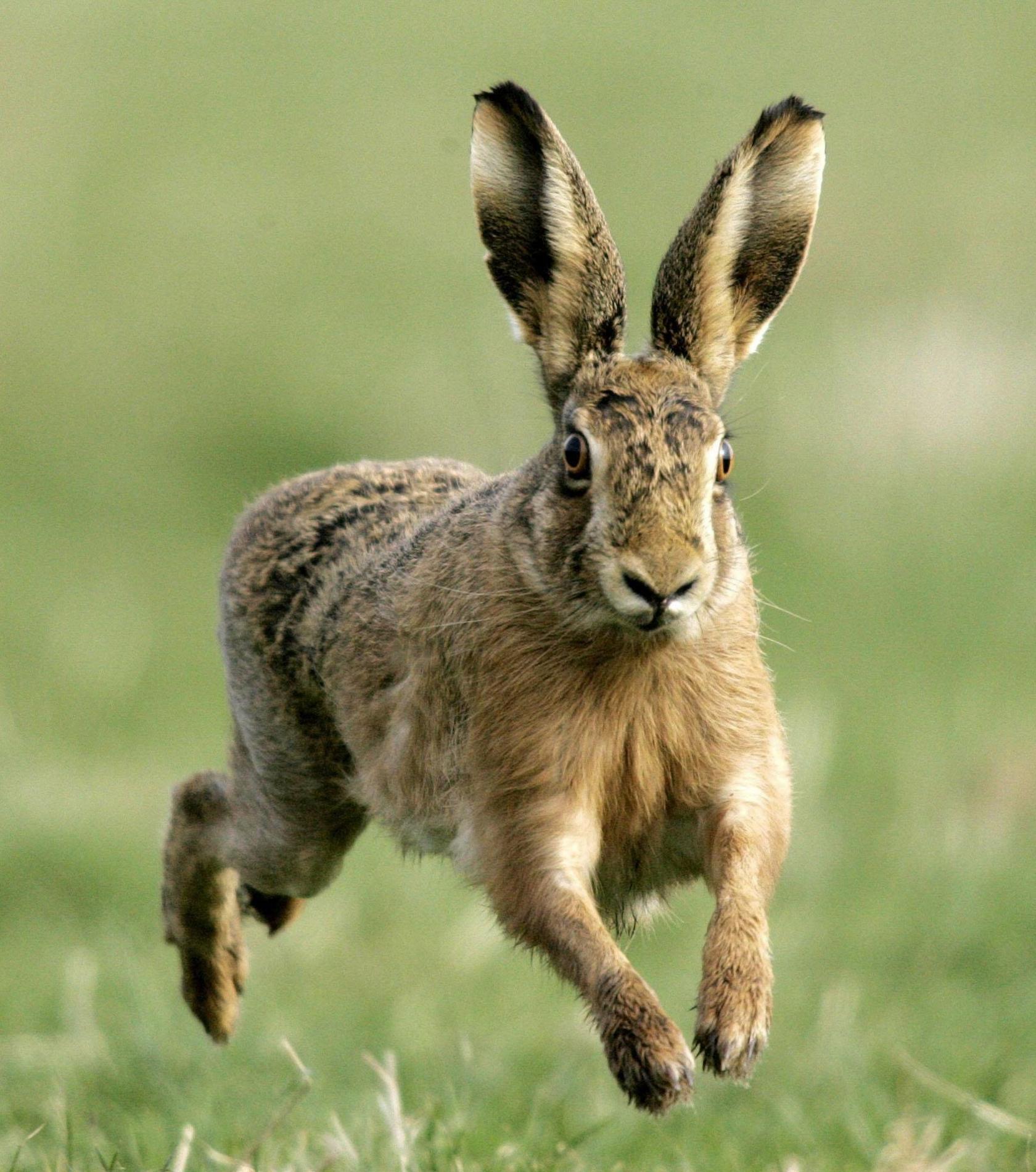Tougher measures to tackle hare coursing in force
- Published

New measures to tackle hare coursing, an illegal activity where dogs are used to chase and kill hares, are now in force.
Anyone caught hare coursing will now face an unlimited fine and up to six months in prison.
In England, there are an estimated half a million brown hares left, but numbers are declining as they face threats including poaching and habitat loss.
Hare coursing was made illegal under the Hunting Act in 2004.
RSPCA Head of Wildlife Adam Grogan welcomed the legislation to crack down on hare coursing coming into force.
He said: "It's a barbaric bloodsport that sees hare cruelly chased, caught and killed by dogs. It's high time hare coursing was consigned to the history books where it belongs."
Hare coursing is also associated with other criminal activities such as theft, criminal damage, violence and intimidation.
Under the new measures, convicted offenders can be stopped from owning or keeping dogs.
And trespass, or being equipped to trespass, with the intention of using a dog to search for a hare is now a criminal offence.
Courts can order that police be repaid for costs caused by kennelling dogs seized in connection with a hare coursing-related offence.
Environment Secretary George Eustice said: "These tough measures will clamp down on the scourge of hare coursing, which blights rural communities up and down the country, and support the excellent work which the police are doing to tackle these often persistent offenders."
Brown hares are most commonly found on arable land and open grassland.
They are known for their long, black-tipped ears and fast speeds of 45mph.